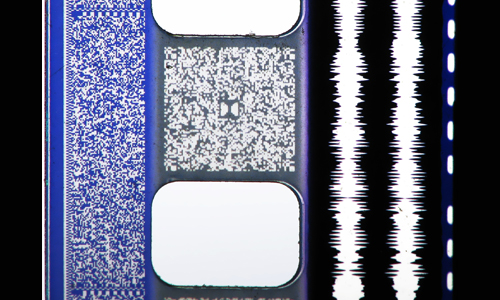Differences between DTS and DTS-HD
The abbreviations DTS and DTS-HD may seem unfamiliar to many of our readers. However, they are not something that we haven’t ever used in our lives. You may have no idea what DTS or DTS-HD is but you may very well have used it or are still using it.
To start with, DTS, which is owned by DTS, Inc. is a series of multi-channel audio technologies. The abbreviation DTS is short for Digital Theatre Systems and that is what the company was previously known as. This American company specializes in digital surround sound formats which have a number of various applications such as consumer grade uses, commercial and theatrical uses. It later became DTS Digital Cinema and went through various name changes as well as changes in ownership but has continued to develop and license DTS products specifically in the home consumer market. Now known as the Datasat Digital Entertainment, the company also announced a range of high-end audio processing products. DTS-HD Master Audio, which was also created by Digital Theatre System is used for surround sound movie soundtracks particularly on Blu-ray Discs. It is a combined lossless or lossy codec in which audio is coded.
To be more precise, DTS is usually found on a DVD Disc whereas DTS HD is found on a Blu-ray Disc. The latter is for sure superior to the former in terms of quality. The HD attached with DTS, as most of you might know, is short for High Definition and therefore a better quality is expected anyways. However it must be noted that the difference is not too much; it is more like an improved and better version of DTS but that by no means implies that DTS is outdated or of low quality. It is almost as good as DTS-HD.
Let us get into the depth of this for those people who know their technology well. A typical DTS-Core has a bitrate which is around 1.5 mbps. This is almost half of what a DTSHD-MA gives you, which includes bitrates up to 3.5 Mbps. Since the two formats have a difference in quality, they are bound to be of different sizes when extracted. Common sense suggests that when extracted DTS would be smaller than a DTS HD which is also true. However, the difference in size is not as much as you may have expected. If you extract an audio stream for each of the two formats you will be able to understand what we are saying here. Take a 24-bit 48 kHz DTSHD-MA track and extract it and you will get an extracted file after demuxing that will be somewhere around 2.4-2.6 GB. And if you do the same for a DTS Core track, the extracted file will be somewhere around 2.3 GB in size. In short, the difference is only about 200 to 300 MB. This is what occurs in most of the cases but it may not always be true. Sometimes, the two may very well be of the same size.
When decoding is needed to be done, a sonic decoder can be used in order to decode the DTS-HD fully. On the other hand, a DTS Core track can be decoded by using the libav decoder. The resulting wav files will be more or less the same in size with the DTS HD one being slightly larger but usually that difference is not sufficient. In DTS core, less information is decoded which may account for the slightly smaller size.
Summary of differences expressed in points
1. DTS- owned by DTS, Inc. is a series of multi-channel audio technologies, the abbreviation DTS is short for Digital Theatre Systems, previous name of the company; DTS-HD Master Audio-also created by Digital Theatre, it is a combined lossless or lossy codec in which audio is coded
2. DTS is usually found on a DVD Disc whereas DTS HD is found on a Blu-ray Disc
3. DTS HD is superior to DTS in terms of quality, difference is not too much though
4. For decoding- a sonic decoder can be used in order to decode the DTS-HD fully; a DTS Core track can be decoded by using the libav decoder
5. DTS core-lesser information is decoded which may account for the slightly smaller size compared to DTS HD
- The difference between Royal icing and Buttercream icing - March 22, 2015
- Difference between stuffed and deep dish pizza - March 21, 2015
- Difference between Crane and Heron - March 20, 2015
Search DifferenceBetween.net :
Leave a Response
References :
[0]http://upload.wikimedia.org/wikipedia/commons/1/1d/35mm_film_audio_macro.jpg

